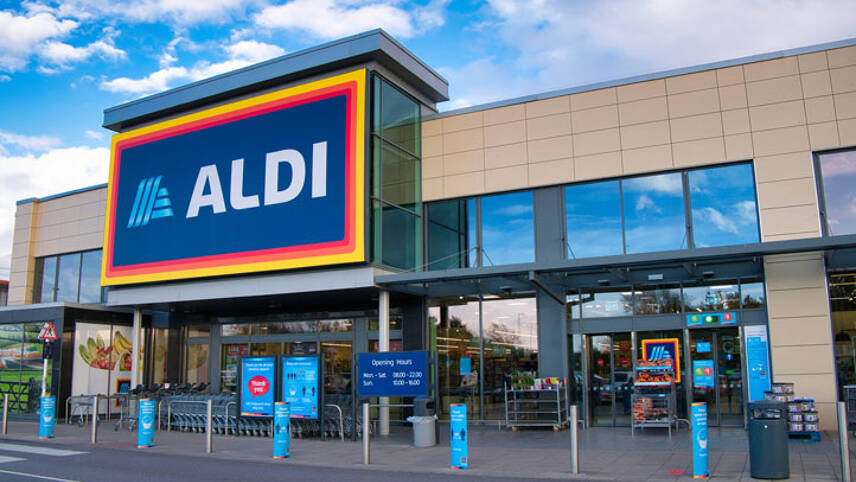Register for free and continue reading
Join our growing army of changemakers and get unlimited access to our premium content

Aldi UK collected around 300 tonnes of flexible plastics in stores in 2023.
The supermarket giant added flexible plastics collection bins to all of its UK stores in 2022 following a series of smaller trials.
Now, it is working with Greenback Recycling Technologies to enhance data collection on the journey of the collected plastics through the recycling system.
Greenback’s system digitally tracks how much plastic is collected and of what kind. It also collects data on the sorting process and on how much is reprocessed into each new product.
Collected plastics are typically used to make refuse stacks and crates and trays for use in logistics processes. Aldi works with plastics reprocessing firm Jayplas to complete this process.
This digital tracking provides a certification of recycled plastics. Aldi received its first certificates this week, verifying the recycling of 87 tonnes of material that was initially collected in 2023.
For context, Aldi collected 300 tonnes of flexible plastic packaging from customers in 2023.
For every tranche of plastics certified using the digital system, called eco2Veritas, Aldi UK receives funding from the Flexible Plastics Fund. Launched 2021 by a group of consumer goods giants, the fund exists to support the growth of a flexible plastic recycling system within the UK.
Fund founders Mars, Nestle, PepsiCo, Unilever and Mondelez have been joined by other firms in this endeavor including online supermarket Ocado, baby food brand Ella’s Kitchen and McCain Foods – perhaps best known for its frozen potato products.
Compliance scheme operator Ecosurety is also a participant in the Fund.
Ecosurety’s Flexible Plastic Fund project lead Gareth Morton said the Aldi UK pilot of eco2Veritas “has been a while in the making – exciting initiative happen. It’s been a while in the making – from exploring options and building trust with the industry, to developing the certification platform which tracks everything and gives everyone confidence in the process and outcomes.”
Building trust
Morton added: “Initiatives like this are essential to build confidence: the public needs to know that this material is actually being recycled; and the industry also needs to know what is possible using this feedstock and that being open about recycling and end destinations has strong benefits.”
Most UK supermarkets now host flexible plastic packaging collection points at large stores, with the number of points having exponentially grown in the past two years.
Some retailers have already had to rethink their recycling partnerships in terms of improving transparency. Investigative journalists from E&T found in 2022, for example, that Tesco and Sainsbury’s were working with a recycling firm that was previously rapped for mislabelling its plastic exports to Turkey in order to work with Turkish reprocessors not technically qualified to handle the material.
This finding prompted the supermarkets to audit the firm, Eurokey.
Related news: Circular economy could save $100bn on annual waste management costs, says UN


Please login or Register to leave a comment.